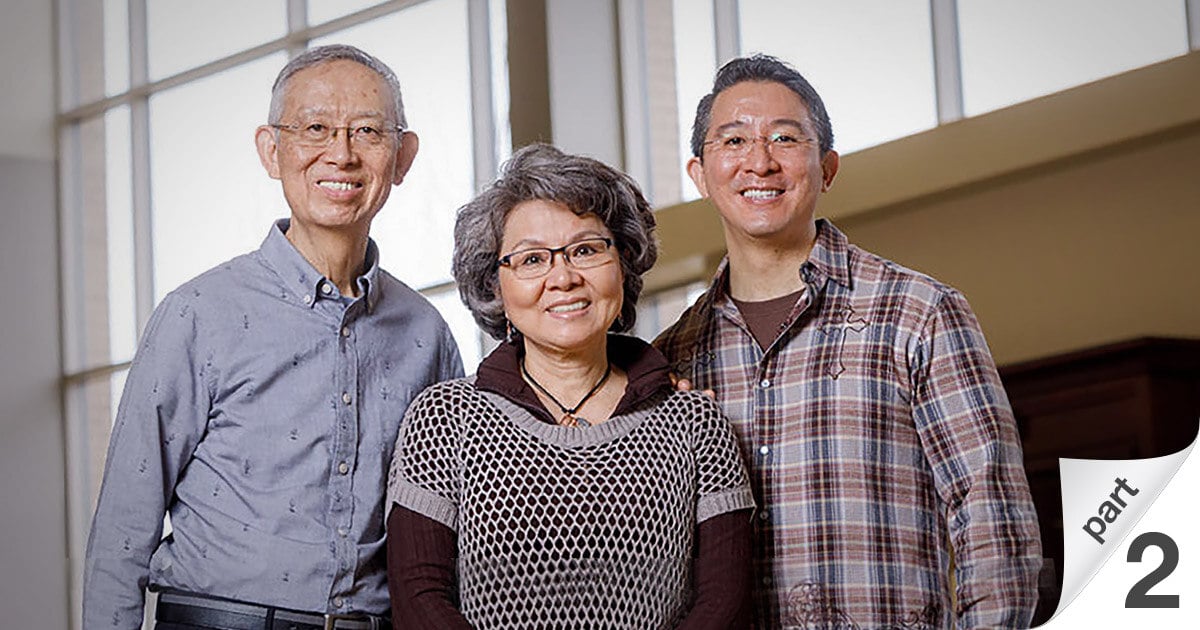Question: Dr. Dobson, I have a three-year-old boy and an infant girl, and they are both precious to me. I want the very best for them, which is the highest priority at this stage of my life. My husband feels the same way. However, I also have an exciting job, and I've always intended to return to it as soon as possible after the birth of my second baby. Now, after learning of your comments about mother-child attachment, I'm uncertain about what to do. Everyone is telling me that there are some very good child care centers in my area and that it would actually be advantageous to my kids to be placed there while I am at work. How do you feel about that?
Answer: Many couples have struggled with that issue since the arrival of their children. Some families feel they don't have a choice, given their compelling financial pressures. I understand their dilemma. But for those who do have options, there is little doubt about what is in the best interest of their children, as I see it. I can say categorically that kids do better physically, emotionally, and intellectually when their parents care for them at home. That is the conclusion drawn from numerous scientific studies, including the most extensive investigation to date. It was a multimillion-dollar long-term study conducted by the U.S. government through the National Institute of Child Health and Human Development (NICHD). It stands today as a landmark study.
Researchers at NICHD demonstrated conclusively that children placed in day care facilities for an average of thirty hours per week, compared with those spending ten hours per week or less, were much more likely to display aggressive behavior, including arguing, cruelty, fighting, bullying, temper tantrums, emotional outbursts, demands for attention, classroom disruptions, and related misbehavior. These kids were still affected by the day care experience at six years of age.1
Jay Belsky was one of the collaborating investigators in the NICHD study beginning in 1991. He is also director of the Institute for the Study of Children, Families and Social Issues, and is highly regarded in his field. Belsky said this about the findings:
Contrary to the expectations (and desires) of many in the field, the NICHD study shows that the more time children spend in day care arrangements before they are 4 1/2 years old the more aggression, disobedience and conflict with adults they manifest at 54 months of age and in kindergarten. These patterns remain even after taking into account multiple features of children's families, as well as the quality and type of day care that children experienced. . . .
Not that you'd know any of this from reading the NICHD's press release or listening to many of the commentators. The results, after all, are not politically popular: many have made their careers representing good child care as a sort of social cure-all. Because child care is here to stay, the argument goes, only the improvement of its quality is important. Anyone highlighting disconcerting evidence is simply against child care. And a weatherman reporting rain is against sunshine.
One must wonder why, after the government invested tens of millions of dollars, so many are bending over backward to minimize the results. This is particularly astonishing in light of the fact that we are talking about early experience had by tens of thousands of children. It's practically the norm these days for American children to start nonmaternal care in the first year of life, often for more than 20-30 hours per week. They continue at similar levels until they enter school.
The recent results, however disconcerting, are consistent with others that have been reported over the years in the study. Published evidence has shown that more time in care, irrespective of its quality, predicts more problem behavior among two-year-olds, less sensitive maternal behavior when children are 6, 15, 24, and 36 months of age; and lower rates of secure attachment to mother when children are 15 and 36 months of age if their mothers' parenting is relatively insensitive.2
Dr. Burton White is another expert on child development whose opinion I respect. He is the former director of the Harvard Preschool Project and a leading authority on the first three years of life. He also commented on the child care issue, as follows:
After more than thirty years of research on how children develop well, I would not think of putting an infant or toddler of my own into any substitute care program on a full-time basis, especially a center-based program. . . .
Unless you have a very good reason . . . I urge you not to delegate the primary child-rearing task to anyone else during your child's first three years of life. . . . Babies form their first human attachment only once. Babies begin to learn language only once. . . . The outcomes of these processes play a major role in shaping the future of each new child.3
Why should we be surprised to learn of the serious problems associated with institutionalized child care? It is common sense to recognize that governments can't pay child care workers enough to do what mothers do for free. A mom and dad are likely to be passionately committed to their own children, and no one else will care for them as well. It is also obvious that the individual attention and verbal interaction between parents and children is clearly superior to that provided by paid employees handling large numbers of children. This is a critical issue, because intellectual competence is most influenced by what is called live language between a mother and her child. There is simply no comparison between the quality of mother care and the custodial care available in group situations.
I am convinced that Dr. White, Dr. Belsky, and other authorities in the field of child development are correct in their views, and I share their conclusions emphatically.
So to answer your question, I recommend that you care for your children at home if possible, at least while they are in the preschool years. Nevertheless, this is a decision you and your husband will have to make. If you do return to full-time employment, I suggest that you do your best to find a close family member, perhaps a grandmother, a sister, a trusted friend, another mother, or a small private consortium to provide for your children during the day. Ideally, that key person should be someone the kids know and love. That caregiver should also be a constant in their lives. Children are creatures of habit, and they do not cope well with dramatic change. The more consistency there is in their daily routine, the less stress there will be for the youngsters—and for you.
1. NICHD Study of Early Child Care and Youth Development: "Does Amount of Time Spent in Child Care Predict Socioemotional Adjustment during the Transition to Kindergarten?"; see http:// www.researchforum.org/project_printable_185.html; Brian Robertson, Day Care Deception: What the Child Care Establishment Isn't Telling Us (San Francisco: Encounter Books, 2003), 85–86.
2. Jay Belsky, "The Dangers of Day Care," Wall Street Journal (July 16, 2003).
3. Karl Zinsmeister, "Longstanding Warnings from Experts," The American Enterprise (May/June1998): 34–35.
From Dr. Dobson's book Bringing Up Girls.
Related Resources












